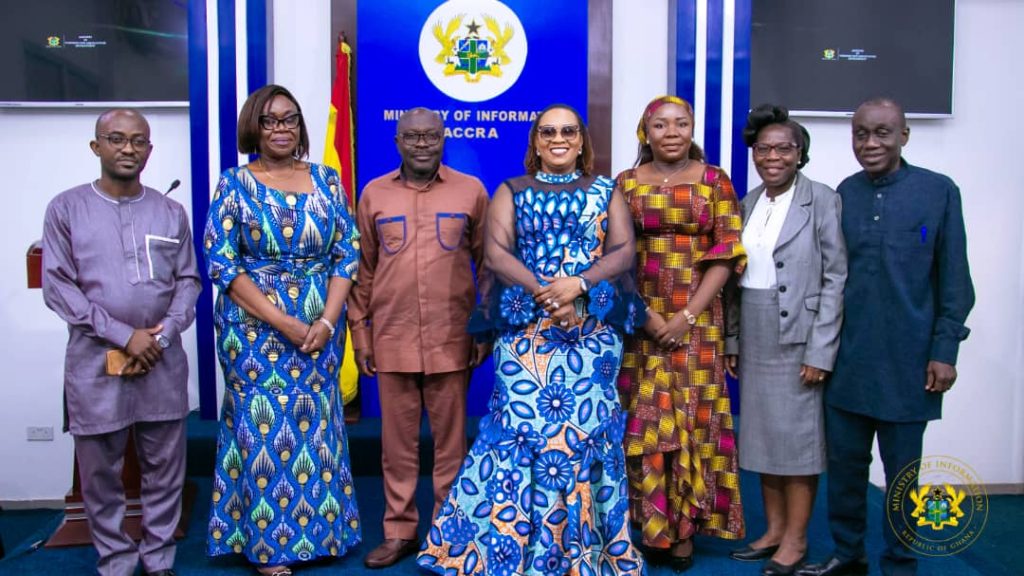By Godwill Arthur-Mensah
Accra, June 14, GNA–As part of measures to combat illegal fishing activities, the Ministry of Fisheries and Aquaculture Development will, this year, begin deploying Electronic Monitoring Systems (EMS) on trawlers and tuna vessels.
The EMS has a video recorder, a camera and a global positioning system (GPS) for recording fishing activities at sea 24/7.
The pilot phase will involve the deployment of the EMS on three trawl vessels this year and subsequently be extended to cover all trawlers and tuna vessels by 2025.
Madam Mavis Hawa Koomson, the Minister of Fisheries and Aquaculture Development, announced this at the Minister’s press briefing in Accra, on Wednesday.
She said it would also implement the Ministerial Directive on specifications in trawl gear to reduce the catch of juvenile fishes and bycatches.
The directive, she said, would ensure that trawl vessels cannot be at sea for more than 30 days for any fishing expedition.
The Minister said Ghana earned over US$250 million from the export of fish and other fishery products to Europe and other countries in 2022.
The fisheries sector, she said, also contributed 1.2 per cent to the country’s gross domestic product (GDP) and supported the livelihoods of more than three million people along the value chain.
Hence, it was imperative to manage the fisheries resources sustainably to promote the well-being of those fishing communities, the Minister said.
The media encounter enabled the Minister to update the public on the outcome of the 2022 Closed Fishing Season and preparations for the 2023 edition.
During the 2022 Closed Fishing Season, she said, the Ministry distributed 20,000 bags of rice and 8,333 cartons of cooking oil to support fishers and fish processors.
Additionally, 6,000 bundles of wire mesh, 20,000 basins, 1,710 chest freezers and 1,150 subsidized outboard motors were given to them in some coastal communities.
The Ministry in partnership with the Ghana Fisheries Recovery Activity launched the Alternative Livelihood Training to support 550 fishers in masonry, carpentry, dressmaking and hairdressing as well as electronics and auto engineering in selected coastal communities to ensure that they earn some income from their trade during the closed season, she said.

Madam Hawa Koomson explained that the implementation of the Closed Fishing Season started in 2016 till date and was done in collaboration with key stakeholders including leaders of Fisheries associations, fishers, academia and civil society organisations.
It was implemented from July 1 to August 31, every year, as a fish stock recovery strategy with the objectives of reducing overfishing and high fishing pressure, rebuilding depleted fish stock and largely replenishing dwindling marine fish stocks.
The legal basis for implementing the Closed Fishing Season is prescribed in Section 84 of the Fisheries Act,2002, (Act 625), which empowered the Ministry and the Fisheries Commission to do so.
The sector minister outlined some measures being implemented by her outfit to curb illegal fishing activities including the deployment of electronic monitoring system on three trawl vessels this year for the pilot phase which would be extended to cover all trawlers and tuna vessels by 2025.
GNA